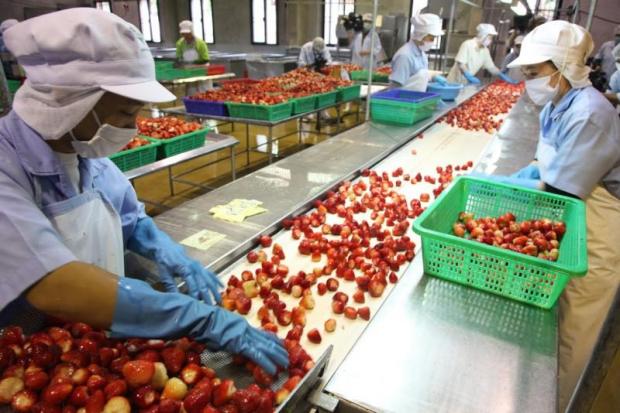
Doi Kham was founded 40 years ago by the Crown Property Bureau following a recommendation from late King Bhumibol to set up a business that buys produce from royal projects and farmers in Chiang Mai at fair prices and provides quality juice for Thai consumers.
The company has grown beyond expectations, becoming profitable in recent years.
Doi Kham has processing plants in Fang district, Chiang Mai; Mae Chan district, Chiang Rai; and Tao Ngoi district, Sakon Nakhon. The company boasts 34 sales shops operating nationwide.
Coffee is another high-value agriculture product that originated in the Doi Tung development project in Chiang Rai. Some 29 hill tribe villages currently grow Arabica coffee and macadamia nuts.
Coffee beans from Doi Tung are known for their high quality, while the Doi Tung coffee shop chain was rolled out to help deliver the coffee to Thais.
There are 100 products sold under the Doi Kham brands, from concentrated juice, yams and honey to canned fruit in syrup. The company also offers tomato-based products.
The company buys 15,000-30,000 tonnes of tomatoes from farmers each year.
Doi Kham products not only cater to domestic consumers but also exports to neighbouring markets.
"Our success is not because of marketing blitzes, but rather our product quality, which has spread by word of mouth," said president and chief executive Pipatpong Israsena.
Mr Pipatpong said since its establishment, Doi Kham sales have continued to increase every year. Even as the country's economic growth has slowed over the last 4-5 years, the company's sales have seen double-digit growth.
Sales of Doi Kham were expected to reach 2.07 billion baht this year and 2.4 billion next year, from 1.82 billion in 2016.
In a bid to achieve its sales target, the company is expanding its business via new channels such as hotels, restaurants and catering, airlines and the export market.
Moreover, the company plans to open more "Doi Kham" shops in Bangkok and suburban areas and open Doi Kham kiosks at BTS stations to better access urban consumers.
It also sells franchise rights to investors to open Krobkrua Doi Kham shops upcountry.
The number of Krobkrua Doi Kham shops will increase to nine this year from seven.
In addition, the company is preparing to benefit from e-commerce, starting next year.
"We want to make Doi Kham a legacy product of the late King, who gave guidelines for Doi Kham's business direction to take care of Thai society and reduce the income gap between rural and urban people,'' said Mr Pipatpong.
There are currently 5,000 farmers engaged in Doi Kham business.